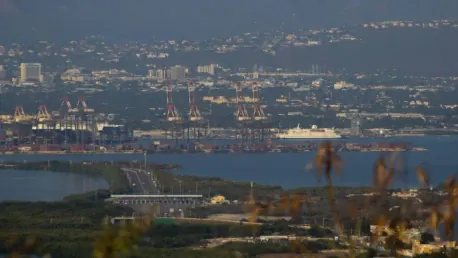Prime Minister Andrew Holness has assured Jamaicans that the country is not in a recession, despite data and reports suggesting otherwise. Holness emphasizes the strength and resilience of Jamaica’s economy, attributing the apparent challenges to external factors such as natural disasters and global market fluctuations. The fiscal policy document for the 2025-2026 Budget indicates a recession, showing economic contractions of 3.5% and 0.5% in consecutive quarters. However, Holness and members of his Cabinet dispute this, relying on the economy’s capacity to rebound from shocks. The debate continues as to whether the economy is indeed in decline or demonstrating a unique resilience in the face of adversity.
External Disruptions and Economic Impact
One of the key arguments presented by Holness is the fact that Jamaica has faced multiple challenges, notably the effects of Hurricane Beryl and Tropical Storm Raphael. These natural disasters significantly damaged the agricultural sector and infrastructure, thereby slowing the economic growth that the nation has worked so hard to achieve. Holness argues that these setbacks, while severe, do not necessarily equate to a recession. He insists that the country’s economic framework is designed to absorb and recover from such hits, pointing to the swift recovery after previous disruptions as evidence. Jamaica’s economic resilience is embedded in policies and frameworks that provide a buffer against unexpected downturns.
Opposition Spokesman Julian Robinson, however, presents a contrary perspective by referencing projections from the Planning Institute of Jamaica (PIOJ) that suggest a recession is indeed occurring. Robinson argues that the government’s optimistic stance may overlook crucial indicators of economic health. These indicators, including consistent economic contractions, suggest that the current difficulties might be more than just temporary disruptions. Robinson emphasizes that acknowledging the reality of these contractions is essential for formulating effective economic policies to address and mitigate their impact. The discussion between Holness’s assurances and Robinson’s concerns thus encapsulates the broader debate on the state of Jamaica’s economy.
Natural Part of the Business Cycle
Holness acknowledges the PIOJ reports and data indicating economic decline but insists that such declines are a natural part of the business cycle. He points out that external factors such as global commodity prices and international conflicts have substantially affected Jamaica’s economy, making these declines somewhat expected. According to Holness, these external influences are beyond the control of the Jamaican government but are accounted for within its economic policies. He believes that maintaining a broader perspective on the business cycle allows for better long-term planning and resilience against short-term fluctuations.
Despite various negative headlines that predict economic doom, Prime Minister Holness remains confident in Jamaica’s recovery potential. He cites the nation’s remarkable rebound after the COVID-19 pandemic as a testament to its enduring economic strength. This recovery, characterized by robust growth and revitalized sectors, is presented as evidence that Jamaica’s economy possesses the resilience to bounce back from current challenges as well. Holness stresses that understanding the cyclical nature of economic activity and recognizing external contributions to economic woes can help Jamaicans stay optimistic about the future.
Balancing Perspectives for the Future
Prime Minister Andrew Holness has assured Jamaicans that the nation is not experiencing a recession, despite some data and reports suggesting otherwise. He highlights the strength and resilience of Jamaica’s economy, attributing the apparent economic challenges to external factors like natural disasters and global market fluctuations. The fiscal policy document for the 2025-2026 Budget indicates a potential recession, citing economic contractions of 3.5% and 0.5% in consecutive quarters. However, Holness, along with members of his Cabinet, disputes these findings, insisting on the economy’s capacity to recover from such shocks. They stress that the economy is exhibiting uncommon resilience in the face of various adversities. The ongoing debate centers on whether the economy is truly in decline or if it is showcasing its ability to overcome challenges effectively. The situation remains a topic of contention, with perspectives varying across different sectors of the government and the public.









